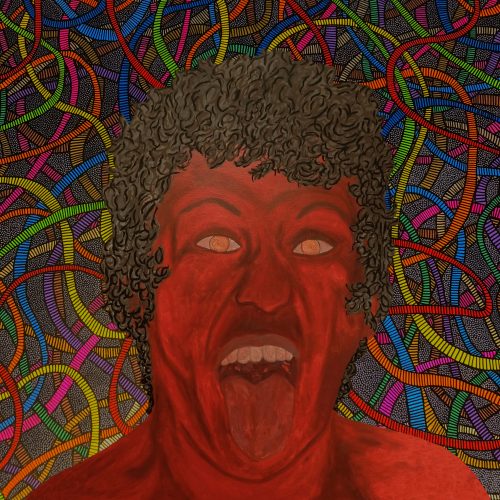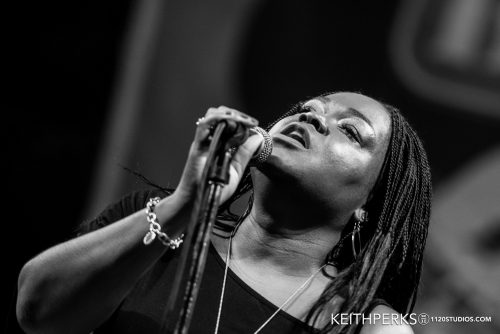For his third solo album of the year, guitarist Justin Mazer decided to go all-in on progressive rock: a multi-part conceptual work that in its framework looks to the giants of the genre for inspiration.
“The album is very much inspired by early ’70s bands like Yes, Black Sabbath and King Crimson but also more contemporary Scandinavian progressive rock and folk music,” Mazer, who lives in Philadelphia, says of the new release, “The Dream Killer Suite.” “Some of the bands that I was listening to and getting inspired by included Elephant9, Moster, Jan Akkerman, Dungen, Jaga Jazzist, Motorpsycho, Godspeed You! Black Emperor, Explosions in the Sky — there’s definitely post-rock influences in sections.
“I had also been thinking about Soundgarden guitarist Kim Thayil a lot during the making of this album. He is one of my favorite guitarists and certainly my favorite of all the early ’90s Seattle bands. For some of the heavier sections of this piece, I was trying to think about what Kim might play if he played in a early ’70s psych/kraut rock band.”
Taking a page from the classic prog albums, “The Dream Killer Suite’s” songs are tied together by a concept.
“There is a story that inspired it, particularly the artwork,” he explains. “I was catching up with my dad around the holidays last year, and he was telling me about a several-month period when he was younger where he was having the same recurring dream every night of a demon figure who would haunt and torment him and the only way he was able to remedy the situation was to train his mind to become lucid within his dreams and more or less stand up to this figure and tell them to the fuck off. So that to me fit the music that I was working on very well, particularly the arc and the dynamics of the piece. I believe this story also serves as some kind of greater metaphor in life in terms of standing up for and defending yourself in the face of adversity. I ultimately wanted to create a short film to go along with it but I didn’t have the time or the resources to do so.”
Mazer, who is originally from Northeastern Pennsylvania, recorded “The Dream Killer Suite” at Writtenhouse Records in South Philadelphia. He played most of the instruments, with Mike Vivas adding synths, keyboards and sound design and David Butler playing drums and additional synths and effects. Mazer and Vivas produced it.
Guitar nerds might be interested to know Mazer used a Fender Jazzmaster he has had since he was a teen as well as a newly acquired Japanese copy of an Ampeg Dan Armstrong series guitar that he had fixed after a high school friend had found it. He adds that he “recorded everything through a ’70s Marshall JCM, run through a Klemt Echolette early ’60s German tape echo unit. I think I left my telecasters at home for the entirety of these recording sessions.”
Taking this music from the studio to the stage — which Mazer has yet to do — presents some challenges.
“For the new year, one of my goals is to get together a live band to perform not only the music of ‘The Dream Killer Suite,’ but (also) some stuff from my other albums and some things I haven’t gotten to record yet.” he says. “For performing instrumental music, I believe the instrumentation and presentation needs to be a little different than a regular band that has a singer and plays more conventional songs. I want to aim to make any performance of my stuff more immersive, with a larger focus on visual elements to accompany and support the music. I am in the embryonic stages of getting some of this stuff together and I hope to have some shows on the books in the earlier portion of 2022. The main areas of focus are building a solid set of music that flows and makes sense in my mind and getting together a band of the right players to successfully execute everything. I want to try to take modern instrumental guitar music into new and uncharted directions, but in a way that is honest and inspired.”
While everything Mazer has released under his own name thus far has been instrumental, he’s open to changing that.
“If something happens naturally, yes, and I have some music that I think would be more well-suited for a vocalist, but the stuff I’m excited about is instrumental, guitar-centric music. I hope that there’s a middle ground between some of the compositional stuff and what that would look like with a singer,” he says.
While the trilogy marks Mazer’s first foray into releasing his own music, he has been playing professionally since his teens and has been a member of some notable bands, including Leroy Justice and Tom Hamilton’s American Babies. He has also been performing with Ryan Montbleau and occasionally adds guitars to Midnight North’s live shows. Midnight North includes Grahame Lesh, the son of the Grateful Dead’s Phil Lesh, and the Dead bassist often sits in with the band; Mazer has had the opportunity to perform with the 81-year-old icon and has struck up a few conversations with him, mostly about nonmusical topics, such as state parks.




Leave a Reply